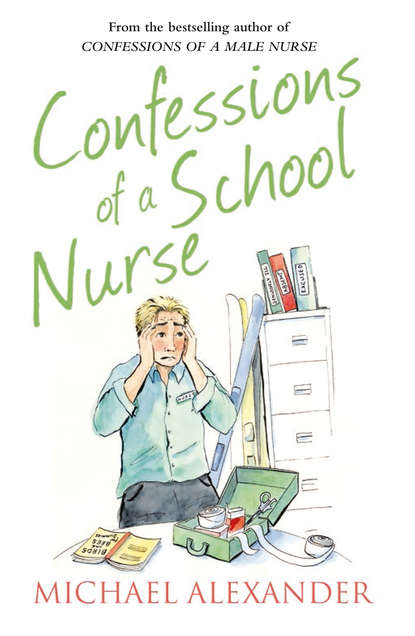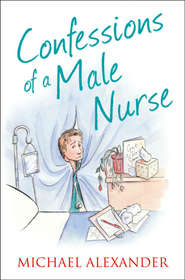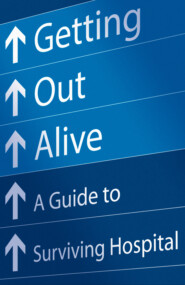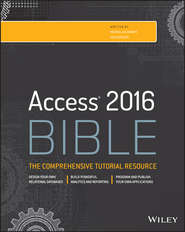По всем вопросам обращайтесь на: info@litportal.ru
(©) 2003-2024.
✖
Confessions of a School Nurse
Настройки чтения
Размер шрифта
Высота строк
Поля
Once the examination was over, Dr Fritz arranged for an ultrasound scan to take place as soon as possible.
‘I do not think it is a torsion,’ he explained, ‘but we need to be sure.’ We were standing by the reception desk, as he turned the pages of his diary. He licked the index finger of his right hand to turn another page … the same hand he’d just used to feel Marcus’s testicles.
I glanced at Marcus to see if he had noticed, and saw him staring at the doctor’s hand, his mouth hanging open. He leant towards me and whispered in an appalled tone, ‘He just tasted my balls.’
Dr Fritz does wear gloves when strictly necessary, has always been proper and he did wash his hands, but not before the ultrasound had been arranged. Where other doctors usually wear gloves when examining warts, fungusy toes, and the like, Dr Fritz doesn’t. I don’t agree with Dr Fritz sometimes, but he is completely trustworthy if a little unprofessional – you wouldn’t get away with it in most places, and in a way, that shows just how unique this little community is.
This was the first of many peculiarities I would eventually come across while working with the doctor.
As for Marcus, the ultrasound showed that he had a hydrocele, or a little cyst full of fluid, attached to his left testicle, that is absolutely harmless. Marcus calmed down a great deal once he realised his balls weren’t going to drop off, and the pain settled with some ibuprofen.
As first weeks go, this was pretty ridiculous … but, as I was to find out, this was just the beginning.
Chapter One (#u6d216568-54a3-537a-9ef6-5659c47e0a8f)
Luke (#ulink_4f37b038-bb69-599b-b4e2-0bf4d246ef29)
I have a confession to make: before seeing the school vacancy, I had never planned on working with children. But I figured it wouldn’t be too hard. I’d learned some of the general rules during my years in the emergency room; developed the hunches that seep into the core of any nurse or doctor who spends their life looking after others.
A screaming child is a good thing, although not for one’s ears. It means a set of functioning lungs and an airway that is clear. A child that fights as you struggle to put in an IV or suck some blood is also a good sign, it means their illness hasn’t sapped too much of their life force. A child that is quiet, a child that doesn’t put up a fight, is a concern. Their illness has begun to overthrow their natural survival instincts.
Luke was quiet. He was nine years old and one of the youngest children at our school. He was also one of my earliest patients.
The junior school consists of about sixty children, an almost even split of boys and girls from ages 9–12, and while they do sometimes mingle with the high school kids, they live and study separately. They do, however, share the same nurse. I see the little ones and the big ones.
‘What’s wrong?’ I asked as I ushered a pale, sunken Luke into the examination room. He mumbled a reply and I asked him to speak a little louder.
‘I feel sick,’ he managed, his chin resting on his chest, his eyes staring blankly at the ground.
The words ‘I’m sick’ don’t really help a lot, but he wasn’t up to giving me a more useful answer. To investigate, I phoned up the people in charge of his dorm to get a bit of background.
‘He’s had a bit of a cough,’ Mrs Pierce his dorm parent explained. ‘I didn’t realise he was so sick. He was running around with the others playing football this morning. I’m so sorry.’
The people in charge of the dorms are usually a married couple of any age, but often with their own children, and they’re the heart of all boarding schools, wherever they may be. They act as a parent to these children, hence the title.
Mrs Pierce sounded defensive, but she had no need to be. Kids are renowned for bouncing off the walls one minute, then being deathly sick the next. They reach that tipping point where their reserves are finally exhausted and their body suddenly catches onto the idea that it’s unwell.
With Luke I, at least, had a starting point – a cough and a runny nose. He also had a high temperature, 39.9. I was worried, not because of his illness, but because it was up to me to make the call on what to do. I could make the five-minute drive to the doctor’s office, but Dr Fritz is a busy man. He has a whole village to take care of, and I can’t go running to him every time a child has a high fever. To help me decide, I did what I would do if triaging someone in the emergency room. I got as much data as possible.
No headache, no neck stiffness, no rash and no photophobia (sensitivity to light) plus a probable cause for his fever, that is, a cough and runny nose; probably a simple cold.
Lungs clear, with good air entry on both sides with no wheezes, crackles or signs of respiratory distress and his pulse and blood pressure were fine. But he oozed misery. His body ached and shivered. ‘I’m so cold,’ he mumbled.
It’s normal to feel cold when your temperature is up. Sometimes it’s the first sign you notice when someone is sick; you’ll find them nestled under two duvets with a hot water bottle, trying to warm up, and when you check their temperature, it’s very high.
‘You’re going to stay with us for a bit,’ I explained as I led him through to the sick bay. We have sixteen beds for 400 kids. The most sick get the beds, while the not so sick stay in their dorm where their dorm parent takes care of them. Luke probably had a simple cold, but such a high temperature needed to be monitored.
‘Please don’t take it away!’ Luke screamed, horrified that I’d removed the duvet and replaced it with a thin blanket. It was the most he’d reacted since being admitted. It’s cruel, watching him shiver, and it didn’t help when I placed a cool compress on his forehead. But he was only nine years old and did as told.
Over the next couple of hours, the combination of cooling measures, paracetamol and half a litre of water brought his temperature back down to 37.2, and his actions showed.
‘Can I watch a movie?’ is a sign that a child is getting better. I set him up with something to watch. Once the movie was over, this was followed by ‘I’m bored’. I love those words. They’re almost as good as ‘I’m hungry’. Sure signs of recovery.
All the same, I kept Luke in the health centre that night. Illness comes in waves, and Luke didn’t disappoint. His temperature went up and down, dragging his body along for the ride, but by the following morning he was feeling good again, and after a day with no fever or body aches, he was sent back to his dorm.
Why had I been so worried? Why had I even considered sending him to the doctor? I knew he had a simple cold, and I know that children are adept at taking onboard very high fevers.
It was because I was the one making the ultimate decision, although it did help having two experienced colleagues to turn to. But I was the one making the decisions, especially late at night or on the weekend, and deciding if a fever was benign, or a sign of something more sinister, even life threatening, and I was the one going to sleep at night wondering ‘what if?’. There were no doctors in the background to run a reassuring eye over him, and no blood tests to see how his white blood cells were holding the fort, or inflammatory markers to see how much of a battering his body was taking. I was using my senses and basic observations to make what seemed like a simple call.
But nothing is simple, and in medicine, the simplest decisions don’t happen without a lot of thought. This is my job now. I’m the decision maker, the responsible one. It’s terrifying.
Learning the basics (#ulink_12264a2e-3c6a-5c13-a49a-71b421862991)
‘Shit,’ I thought to myself as yet another girl burst into tears. That was three already this morning. What the hell was I doing? Am I some sort of monster?
No, I was just doing what I had done for the last half dozen years – triaging the students as if this were an A&E department.
‘My nose is blocked,’ said Marie. I handed her a box of tissues and moved on to the next patient.
‘I feel dizzy,’ said Sarah. Blood pressure fine, pulse steady and strong, no medical history of note, but skipped breakfast – treated with banana and told to return to class.
‘I’ve got a cough,’ said Isabelle. Chest clear, cough non-productive, dry, had only for 24 hours, no fever, otherwise well, and has not coughed once in the last thirty minutes she’s been in the waiting room – told to take some cough syrup if it comes back, no treatment at present.
Marie hadn’t made it out to the hallway before the flood of tears began again. I stood and watched helplessly as she sat back down between Sarah and Isabelle, who instantly put their arms around her. For teenage girls, tears are contagious, and within moments the three of them were weeping quietly, hands entwined, consoling each other with mumbled words and the occasional glance in my direction, pleading with their eyes for some sign of compassion from me.
I’d never managed to upset three fourteen-year-old girls at once before, but I was doing a fine job of it. I’d even made it an international event, as Marie was Italian, Sarah American, and Isabelle from Russia. I’d covered half the globe.
What the heck should I do?
I did what any male would do when confronted with such a convincing scene. I ran for the hills!
Not really.
I let all three of them rest in the bedroom for an hour and made them some camomile tea with honey.
‘We won’t bother you again all week,’ promised Marie as she went back to class.
‘Thank you so much,’ said Sarah.
‘You didn’t forget to excuse us from class?’ asked Isabelle, making sure they didn’t get an absence marked on the computer.
‘You’re all excused. No need to worry,’ I assured them.
I had just let myself be played. They knew it, and they also knew I knew they knew. I suspect they felt obliged to push the limits. They had three new nurses, completely new to the world of boarding schools, and in these first few months everyone was still figuring out their boundaries. But if I was to continue treating these students like we were in a hospital trauma centre, I was never going to come out on top. I had to come up with another strategy, because if 90 per cent of the patients I had seen this morning had turned up to their local hospital, they would have been encouraged to turn away, or put at the back of the queue and wait hours to be seen.
Hospitals are great for treating accidents and the seriously unwell, but my role as a boarding school nurse was much more than just looking after the sick.
I’m more than a nurse; I’m a parent to these kids, a disciplinarian, an example, a counsellor, a mentor and often a dry shoulder to cry on. It sometimes means playing along with them and their antics, their dramas, and it also means knowing when and how to set limits – you have to know when to say ‘enough is enough’.











